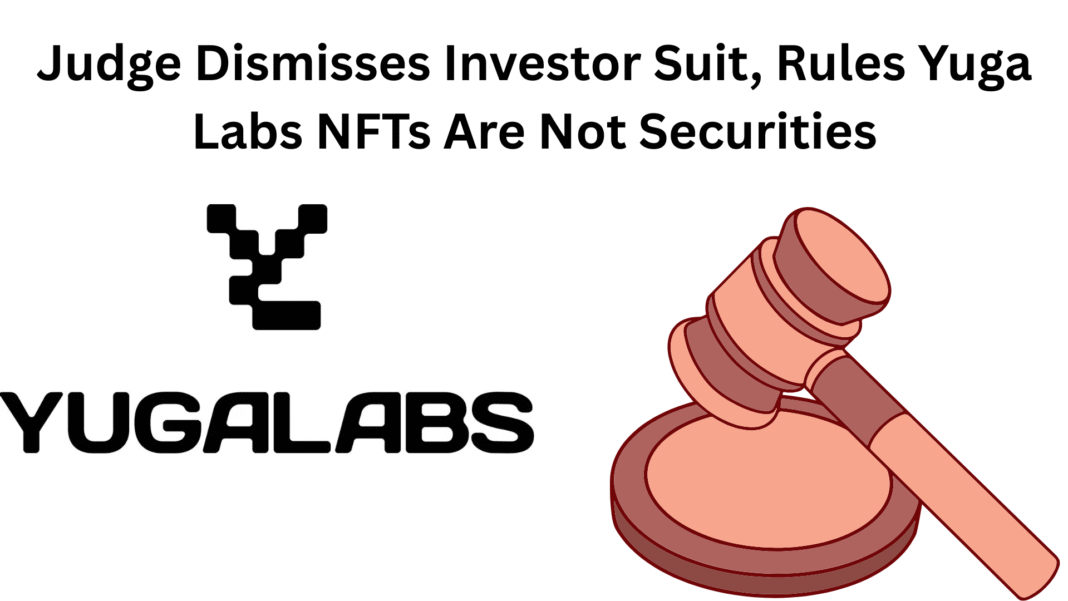A U.S. judge, Fernando M. Olguin, has tossed an investor lawsuit against Yuga Labs after finding the plaintiffs did not show that the company’s NFTs meet the legal test for securities.
The suit, originally filed in 2022, accused Yuga of selling Bored Ape Yacht Club tokens, ApeCoin and other NFTs as investment contracts.
Olguin said the plaintiffs failed to prove the items met the three parts of the Howey test, and so the claims could not stand.
Why did the judge rule this way?
The judge stated that Yuga marketed its NFTs as digital collectables and as membership items for an exclusive club. That, he wrote, puts them in the category of consumable goods rather than investment contracts.
He added that merely promising future benefits does not turn a consumable product into an investment. The court also found no showing that buyers were tied to a common enterprise where profits depended on the work of others.
Also Read: Yuga Labs Acquires Tokenproof’s Technology & Team To Boost NFT Real-World Utility
How did the court view buyer links and claims of profit?
Olguin noted that the NFTs trade on public blockchains and that the record does not show an ongoing, dependent financial link between purchasers and Yuga Labs. In his view, the plaintiffs did not show the required expectation of profit driven by others.
The judge also stated that statements about a product’s value do not automatically constitute promises of profit. Comments about prices or trading volume, he said, were close questions but still did not meet the legal threshold.
A lawyer for Consensys, Bill Hughes, weighed in on social media to point out a related detail. He said buyers paid a fee to Yuga that was separate from the market price of the NFTs. At that point, he suggested, it undercuts the claim that purchase prices were directly tied to profits for investors.
What does this mean for Yuga Labs and NFT sellers?
The ruling removes a big legal threat to Yuga, and if it stands, it could make it harder to treat many NFTs as securities in future suits. That may ease worries for creators and platforms that run similar projects.
At the same time, the decision does not end the debate about digital assets. Regulators and courts may still test other tokens and facts under securities law.
Legal backdrop and recent twists
This case is one of several that ask how long-standing legal tests, like the Howey test, apply to new crypto products. In another notable development, the Ninth Circuit Court of Appeals recently reversed a $9 million judgment that had favoured Yuga in its lawsuit against artist Ryder Ripps.
Yuga had won a judgment in 2023 for trademark claims and cybersquatting. The appeals court action changes that result and adds a different legal angle to Yuga’s recent run of cases.
What remains open?
While the judge’s ruling might clear some ambiguity, it by no means gets rid of all uncertainty, and the distinction between a collectable and an investment can be subtle. Regulators may pursue enforcement actions based on other legal theories.
The court’s dismissal gives Yuga Labs breathing room and may set a helpful precedent for some NFT projects. It also shows how courts are adapting old legal tests to new digital goods. Still, the outcome is not the final word on NFTs and securities law.


